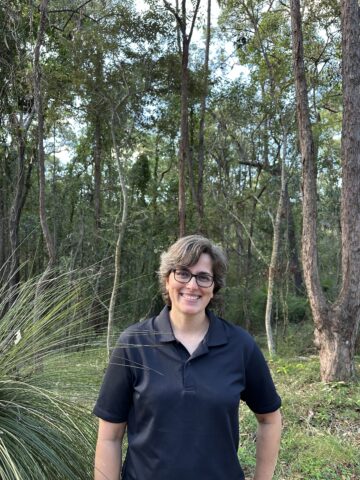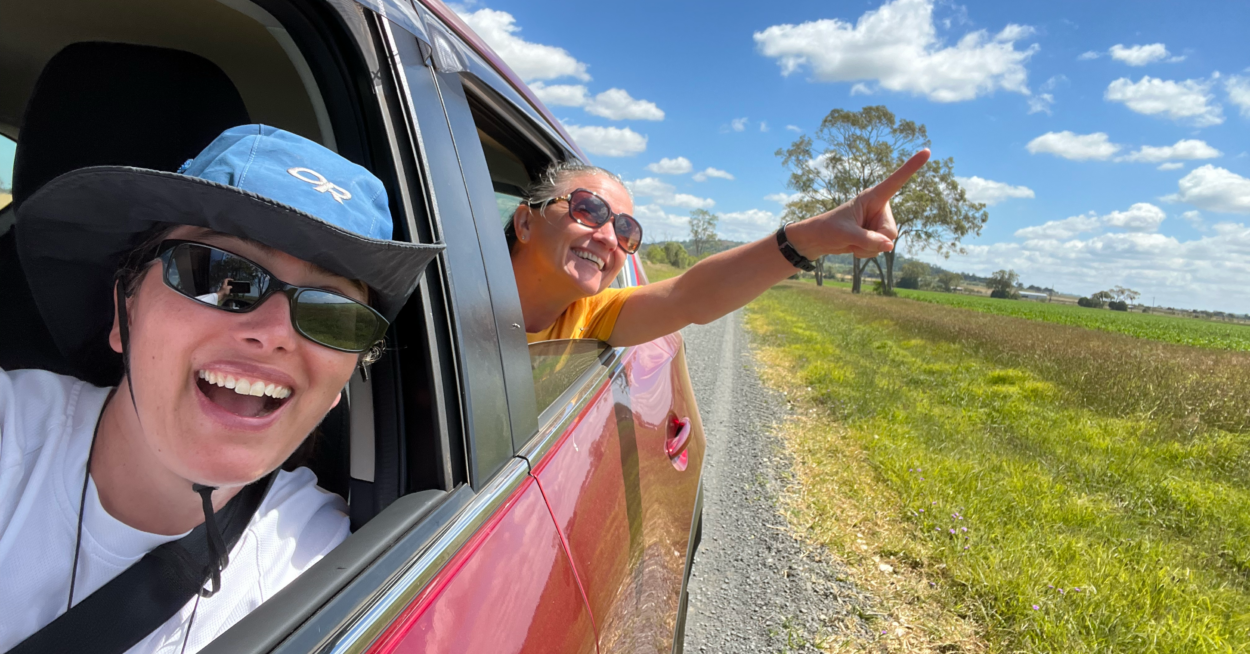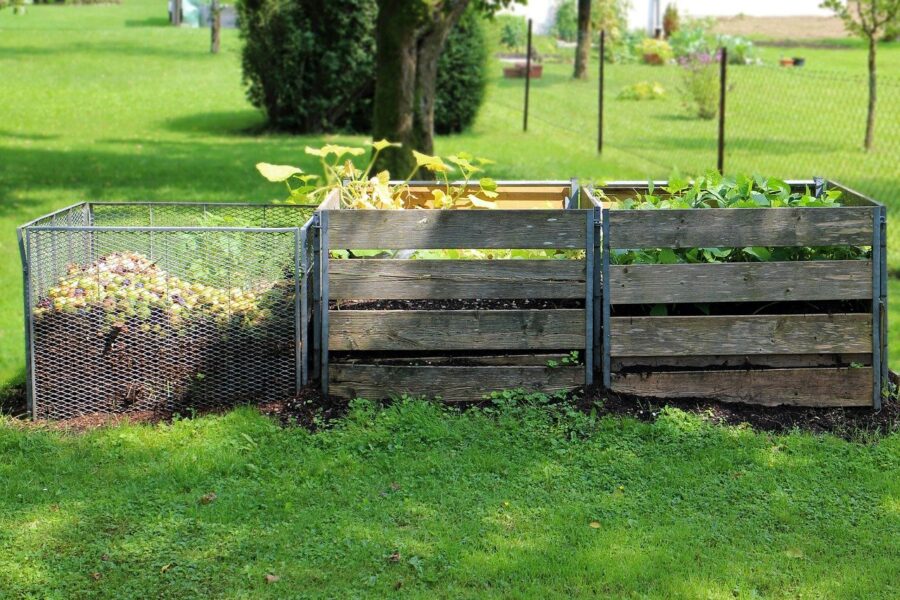How do you make a career around the thing you love? For Liz Foote, the second part was easy, there was no question what it was she loved. She grew up by the Atlantic Ocean and spent countless days turning over rocks to discover marine life by the seashore. She made the most of her family visits to Nantucket Island on whale watch charters and attended nature camp every summer. She loved the ocean so much that she obtained her SCUBA diving certification at age 14—the youngest age at which she legally could at the time.
As Foote grew up, she worked to find a career in conservation by studying marine science and got a degree in Ecology, Behavior, and Evolution. After college, she found work as a marine naturalist on tour boats on Maui, and she went on to earn a master’s degree in science education and founded a marine conservation nonprofit in 1999. She seemingly had found her path.
But there was still more to discover. In 2013, Liz was recruited to serve on a steering committee for a social marketing project in Hawai‘i, and immediately loved the discipline’s focus on promoting social and environmental causes by combining approaches from commercial marketing as well as the social sciences. Foote, like many, didn’t know what social marketing was before being exposed to it, but she saw its potential as a powerful tool for conservation work. To learn more, she signed up for workshops by Doug McKenzie-Mohr, who has trained thousands of environmental professionals in Community-Based Social Marketing, and around the same time, serendipitously met Nancy Lee—another key leader in the field—while Nancy was vacationing on Maui. Doug and Nancy recognized Liz’s enthusiasm about the field and encouraged her to pursue a PhD. These insights and their support led her to shift course and pursue a PhD in Environmental Studies from Antioch University.
Today, Foote finally has what she calls her “dream career.” She is a leader in the field of social marketing, working as a research fellow in social marketing at Griffith University in Queensland, Australia. She works with teams of scientists, academics, and practitioners—and those who overlap the academic and practitioner realm, also known as “pracademics”—working on projects promoting citizen science and other conservation initiatives.
“Liz is a powerful and effective collaborator, who is a real rising star in the international social marketing community of pracademics,” says Abigail Abrash Walton, the Chair of Antioch’s Department of Environmental Studies and Foote’s dissertation adviser. “She will continue to shine and to contribute to important work at the nexus of conservation psychology.”
The Path from Marine Science to Social Marketing
While working in Hawai‘i, Foote observed firsthand the way that vacationers participated in ocean tourism, yet many came away from their excursions, still knowing little about the environments they were visiting, how they worked, or their importance to ecosystems. Worst of all, many didn’t know how they, as individuals, could help keep natural habitats alive and thriving.
This was the essential observation that led Foote to start a nonprofit that offered educational programs for tourism. She piloted the program using high school students as marine naturalist volunteers, and soon, she was teaching visitors and community members alike about the marine environment. She later expanded the focus of the organization to community-based marine conservation. But despite this success, as the years passed, she found herself experiencing some burnout. As she explains today, “Years of work in conservation can cause fatigue and disillusionment.”

Foote’s exposure to social marketing made her think there might be another way. And this led her to attend the 2017 World Social Marketing Conference in Washington DC and connect with the international social marketing community there and online. As she learned more about social marketing, she came to see how powerful of a tool it was for fostering sustainable behaviors. Especially she was interested in the way social marketing lets you measure, assess, and design truly effective community engagement strategies for environmental advocacy and conservation.
Soon, Foote was looking for graduate programs where she could pursue this new passion. She sought a flexible, low-residency program for working professionals that would allow her to conduct research and learn more about behavioral science. When she found Antioch University, it seemed like the perfect fit. In traditional academic settings, graduate students often work on their advisor’s research projects, but at Antioch, she got to create her own research project.
She eventually decided to research the question of why social marketing, despite being highly effective, still isn’t as well-known or widely adopted within environment and sustainability settings as it might be. Because the program encouraged her to have external advisors, she invited Nancy Lee to serve on her dissertation committee. Over the course of the project, Foote interviewed 90 people within the discipline, and in 2022 she published her dissertation, “The Diffusion of a Discipline: Examining Social Marketing’s Institutionalization within Environmental Contexts”
Foote finished her dissertation during the COVID-19 Pandemic. This changed the methods of the study—she needed to conduct her research remotely, and that forced her to shift from field-based case study research in the Pacific Northwest to conducting interviews online. She called and talked to people, built connections and rapport with interview participants, and learned what they considered to be success factors for the discipline. Conducting her dissertation research this way helped her to develop a network of colleagues in the field of social marketing well before graduation. She also made valuable connections with several social marketing associations, and she met people around the world who she would go on to collaborate with on articles, projects, and presentations.
Foote also found friends and colleagues within her Antioch cohort. She remains in touch with many of them to this day, and she calls them her second family. “I didn’t just come out of Antioch with a job,” she says. “I came out with a community.”
Boosting Citizen Science and Saving Koalas
Today, Foote is a Research Fellow at Social Marketing @ Griffith at Griffith University Business School in Brisbane, which is located in South East Queensland, Australia, on the Coral Sea. At Griffith, she’s helping lead a project, “Koala Guardians: Empowering community to protect an Australian icon,” a social marketing endeavor built around koala conservation. For this project, Foote and her colleagues are collaborating with eight partner organizations in Queensland to develop technology for innovative solar-powered Bluetooth koala ear tags that will enable them to pair with a smartphone application and a digital platform to enable public participation in tracking, reporting, and conserving the endangered population of koalas.
In this work, Foote is served well by her experience as a community-based conservation practitioner alongside her systems-oriented doctoral studies. Foote’s role in the project—funded by an AU$798,000 grant from the Australian Research Council—is to serve as co-principal investigator.
Citizen science (also known as “participatory science”)—research conducted with the participation of the general public—has the potential to play a major role in the conservation of koalas. However, koala sighting submissions in South East Queensland are low. Foote has been investigating this problem, and one of her previous studies sought to identify the characteristics of current citizen scientists and examine their experiences in reporting koalas across a range of local koala sighting programs. For this early project, a total of 2,024 South East Queensland residents completed an online survey that asked both about the number of koala sightings they had reported and about their knowledge of koalas and engagement in koala conservation activities. Using a logistic regression model alongside a qualitative analysis, the team identified barriers and drivers linked to the behavior of submitting koala sightings. This study led directly to the current work by identifying opportunities to improve the citizen science experience through training and education, timely feedback, improved app experiences, and better communication.
When she takes a step back from this work, Foote is surprised and also delighted by where her career has led her. She never envisioned an academic career, but now that she works in a practice-oriented academic setting, she loves it. Social marketing is a place for grassroots engagement and really trying to understand what motivates people. As Foote puts it, social marketing is about “amplifying what is meaningful to people and building engagement off of that.”
Abrash Walton, the Environmental Studies Chair, who has collaborated with Foote on several publications, says, “I am very proud of what Liz is accomplishing by directly applying her social marketing research and public engagement expertise to these important conservation initiatives in Australia.”
“It’s sometimes surreal to me,” says Foote, “Being three hours away from the Great Barrier Reef, surrounded by the Gondwana rainforest and Eucalyptus trees.” She loves her job. And as she puts it, “Antioch made it possible.”






